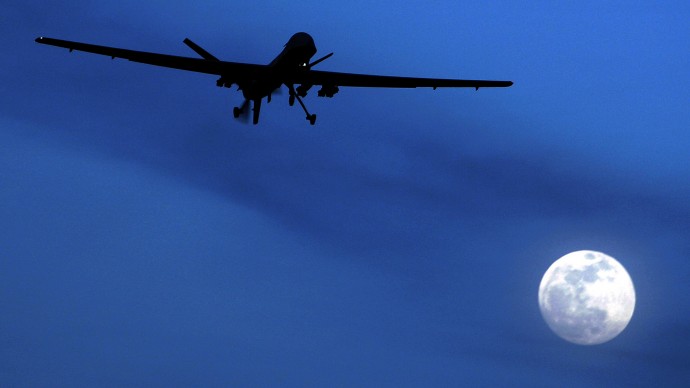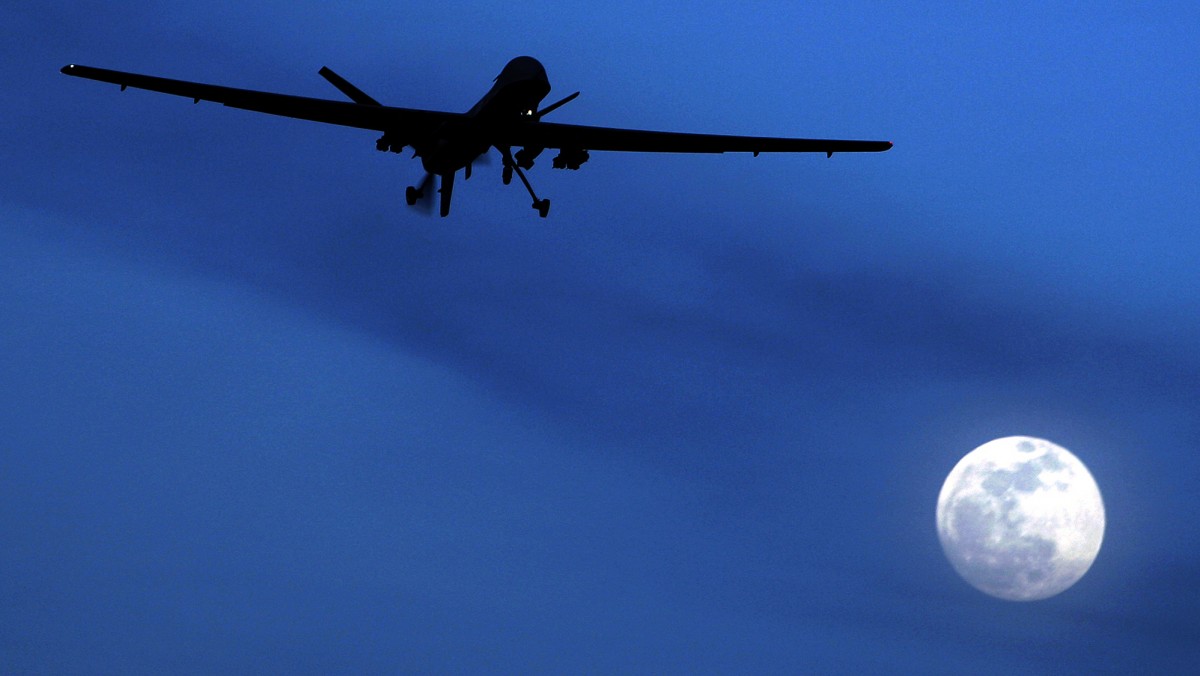
(MintPress)— Surviving members of Anwar Aulaqi’s family have launched a suit against the U.S. government with the help of the American Civil Liberties Union (ACLU) and the Center for Constitutional Rights. The legal action is in response to U.S. military drone strikes in 2011 that killed three U.S. citizens in Yemen. Family members claim the killings were unconstitutional assassinations against individuals denied due process of law. The lawsuit represents the latest challenge against U.S. drone strikes, which previously have been criticized for indiscriminately killing hundreds of innocent civilians in Pakistan and Yemen.
Legal challenge
Nasser Aulaqi and Sarah Khan, the family of the victims and main plaintiffs in the case, filed suit against the U.S. government on July 18. The two have partnered with the American Civil Liberties Union (ACLU) and the Center for Constitutional Rights in their quest for justice. Speaking about the killing of his grandson, Nasser Aulaqi said, “I never thought that one day, this boy, this nice boy would be killed by his own government.”
Pardiss Kebriaei a lawyer at the Center for Constitutional Rights working on the case, added similar condemnation of U.S. actions, saying, “There is something terribly wrong when a 16-year-old American boy can be killed by his own government without any accountability of explanation.”
Defendants in the case include Defense Secretary and former CIA Director Leon C. Panetta, Commander of the U.S. Special Operations Command William H. McRaven, Commander of the Joint Special Operations Command Joseph Vote, and CIA Director David Petraeus.
“The killings violated fundamental rights afforded to all U.S. citizens, including the right not to be deprived of life without due process of law,” the legal complaint states. Previously, the use of drones has been criticized by rights groups citing the indiscriminate killing of hundreds of innocent civilians in Pakistan and Yemen.
Anwar al-Aulaqi
Anwar al-Aulaqi, one of the three U.S. citizens killed in the drone strikes, was born in New Mexico in 1971. Al-Aulaqi, know also as “bin Laden of the Internet,” was well known for his fiery sermons among jihadi and conservative Salafi Muslim groups. Aulaqi was educated in the U.S., but spent much of his adult life in Yemen. He maintained dual American-Yemeni citizenship.
The CIA believed that he did not have a direct operational role in al-Qaida in the Arabian Peninsula, but served instead as a spiritual guide for terrorists.
The al-Qaida leadership viewed his fluency in English as an asset since he could deliver clear messages to English speaking Muslims. Many of Al-Aulaqi’s videos were posted to YouTube. Jihadi organizations, becoming ever more tech savvy, have expanded their presence on social networking sites Facebook and Twitter, as well as YouTube, in an effort to disseminate their message to a broader audience.
Many of Al-Aulaqi’s videos had been removed because of U.S. government requests. U.S. officials believe Al-Aulaqi maintained correspondence with three of the 9/11 hijackers as well as Nidal Hassan, an officer in the U.S. army who killed 13 soldiers at Fort Hood, Texas in 2009.
Al-Aulaqi, along with another U.S. citizen, was killed in Southern Yemen Sept. 30, 2011 by an unmanned aerial drone. Although the connections between Al-Aulaqi and known terrorists is clear, the failure to prosecute a U.S. citizen in a court of law, legal experts claim, is a clear violation of Al-Aulaqi’s constitutional rights.
Additionally, Al-Aulaqi’s 16-year-old son Abdulrahman Al-Aulaqi was killed in a similar drone attack just two weeks later. Abdulrahman Al-Aulaqi was born in Denver, Colo. and was killed along with six other civilians in the targeted strike without charge or due process of law. To date, there has not been a formal government account as to why these individuals were killed.
Samir Khan, the 25-year-old Pakistani-American editor of al-Qaida’s English language “Inspire” publication, was killed in the same attack. Khan had previously written articles praising the work of Osama bin Laden, and provided information, including bomb making instructions, to his readers.


